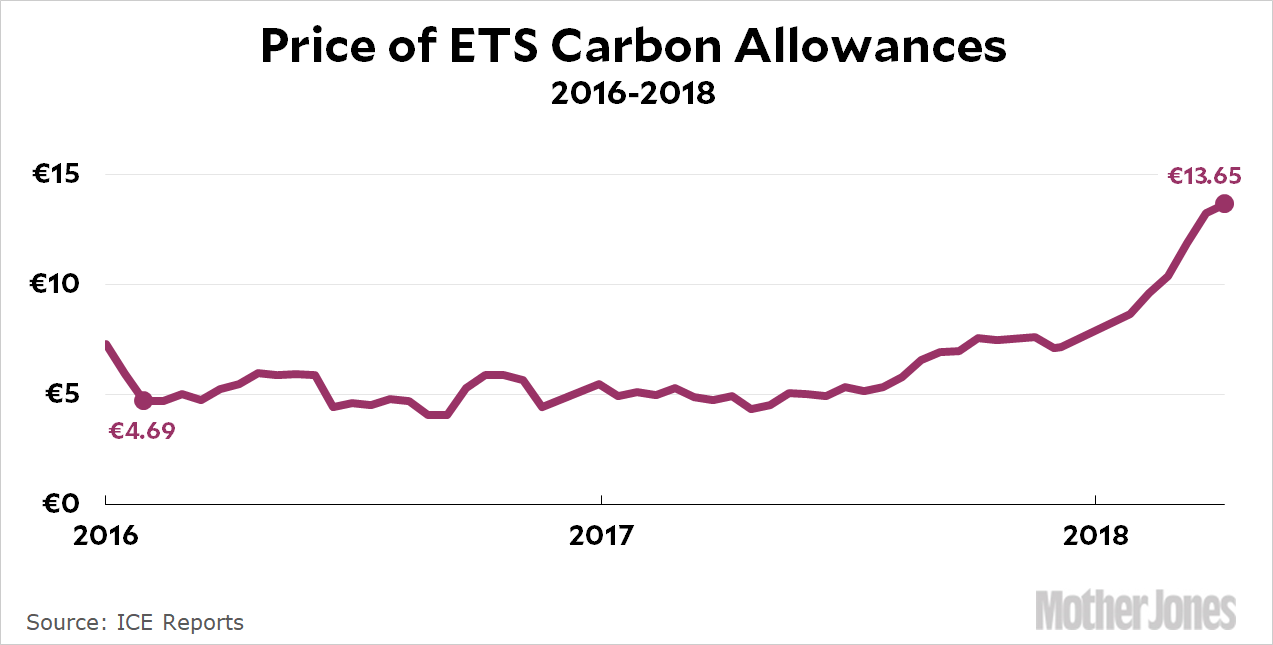Do cap-and-trade systems work? The first one certainly worked to reduce acid rain. But what about carbon emissions? The biggest and most ambitious carbon trading system in the world is Europe’s ETS, which has been widely viewed as a failure because the price of its carbon allowances was so low for so long. If the cap on carbon is so loose that it hardly costs anything to buy carbon allowances, you’re not reducing emissions much, are you?
A big part of the problem with ETS was bad luck: by the time it really got rolling, the world had fallen into a deep recession that would last for years. As a result, starting around 2010 demand dropped for just about everything in Europe, and along with that so did carbon emissions. For a long time, ETS wasn’t really needed because the recession was keeping emissions low all by itself. But now the world economy is recovering and emissions are going up:
Emissions regulated under Europe’s carbon market rose for the first time in seven years in 2017 due to stronger industrial output, data published on Tuesday by the European Commission and examined by carbon analysts at Thomson Reuters showed.
….According to the analysts’ interpretation of the data, emissions totalled 1.756 billion tonnes of CO2 equivalent (CO2e) last year for companies under the ETS excluding airlines, up 0.3 percent on the previous year.
And guess what? With emissions rising, so is the price of ETS carbon allowances:

One of the virtues of any emissions system is predictability: companies prefer to deal with fairly steady requirements, rather than being buffeted by big swings in how much they’re allowed to emit or how much they have to pay for it. This is the Achilles’ heel of cap-and-trade: it can produce big swings in allowance pricing, as we’re seeing now. But every system for limiting greenhouse gas emissions—whether market-based or purely regulatory—has weaknesses. Generally speaking, a well-designed cap-and-trade system regulates exactly what we want to regulate: emission levels. And it does it efficiently by allowing companies to trade allowances, which ensures that the least important emissions are the first ones cut.
And it’s going to get better: next year the EU’s Market Stability Reserve goes into effect, and this will cut back on emissions even further. ETS isn’t perfect, but its history shows what can happen when a government is dedicated to reducing greenhouse gases and just keeps plodding along. Eventually things start to work pretty well.

















